A Riveting Winston Churchill Biopic Elevated by Gary Oldman, Slightly Marred by a Clichéd Climax
In May 1940, Winston Churchill (Gary Oldman) ascends to the position of Prime Minister of Britain. This role was the culmination of a lifetime of political ambition, yet his triumph is muted. The nation he now leads is in dire straits. German forces are decimating the French army and have encircled the British Expeditionary Force in Dunkirk, sent to aid the Allies. Should these troops be defeated, Britain would be left defenseless against a Nazi invasion. The United States, maintaining its neutrality, refuses to offer assistance. Foreign Secretary Halifax (Stephen Dillane) advocates for peace negotiations, suggesting significant concessions to preserve the country’s independence. However, Churchill remains steadfast in his distrust of Hitler. He orders the evacuation of as many soldiers as possible from Dunkirk, grappling with one of the most pivotal decisions in British history: “Negotiate or fight to the bitter end?”
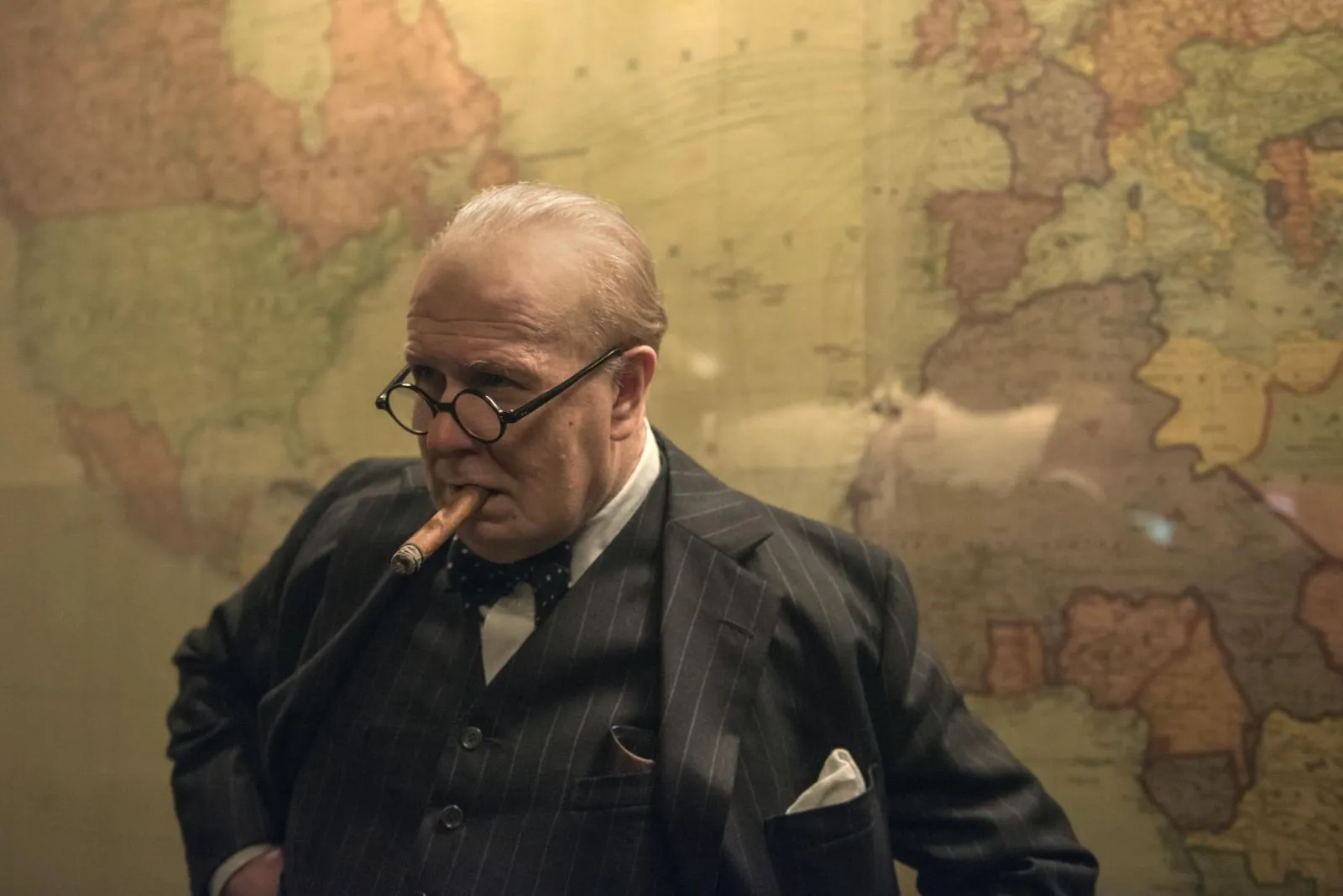
Gary Oldman spent over 200 hours in the makeup chair and smoked over 400 cigars to portray Churchill.
While Christopher Nolan’s “Dunkirk” deliberately excluded high-ranking officials, politicians, and military figures, focusing instead on the experiences of ordinary British citizens – soldiers, pilots, sailors, and civilians – during those harrowing days, it presented a stirring but incomplete narrative for those seeking a comprehensive understanding of the “Miracle of Dunkirk.”
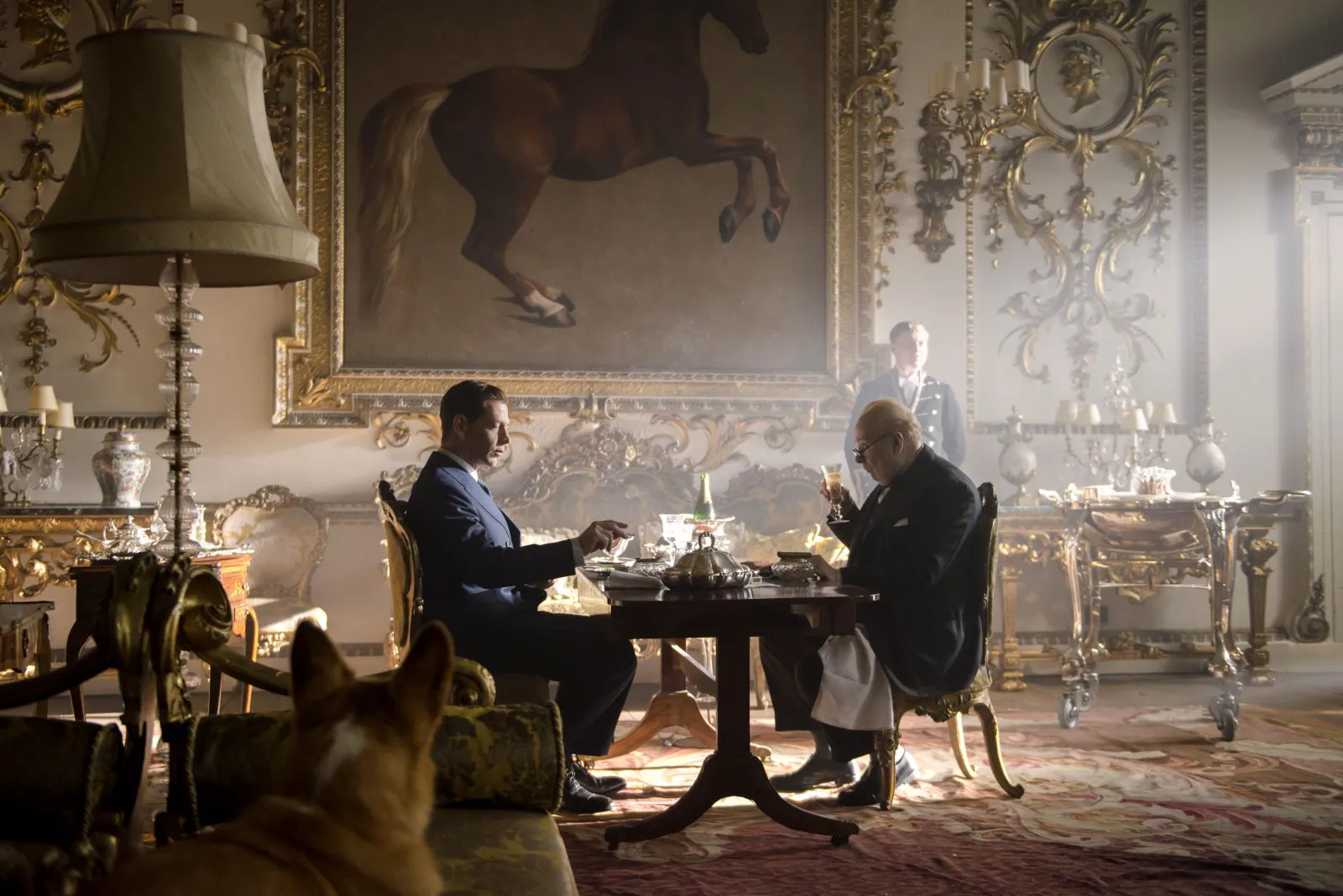
Therefore, it is gratifying that, concurrently with Nolan’s film, another British director, Joe Wright (“Atonement,” “Anna Karenina”), has crafted a Dunkirk-related film where the action unfolds primarily within the corridors of power and a secret bunker. This is a story about the decision-making processes that led to the extraordinary evacuation and Churchill’s iconic “We shall never surrender” speech, which resonates in the finales of both productions.
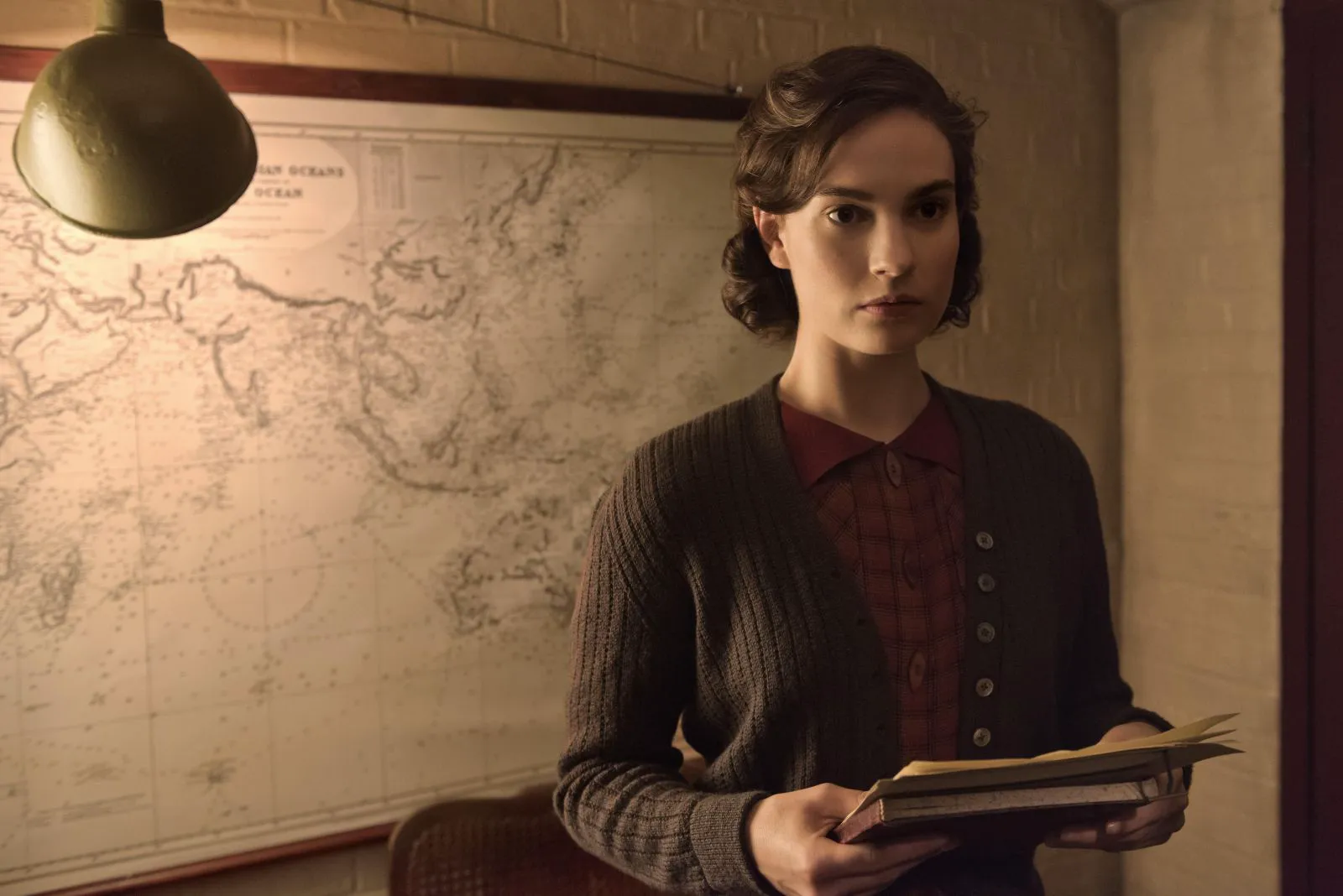
A Portrait of a Leader
While Nolan’s “Dunkirk” is a multi-faceted work with interwoven storylines, “Darkest Hour” is a portrait of a single individual who shaped the destiny of a nation. Although other characters exist and even have scenes independent of Churchill, the Prime Minister is omnipresent, either visually or conceptually. If he is not speaking, he is being spoken about. Figures such as Foreign Secretary Halifax, former Prime Minister Chamberlain, King George VI, Churchill’s wife Clementine, and his loyal secretary Elizabeth, all serve to highlight different facets of Churchill’s character, providing insight into his inner self.
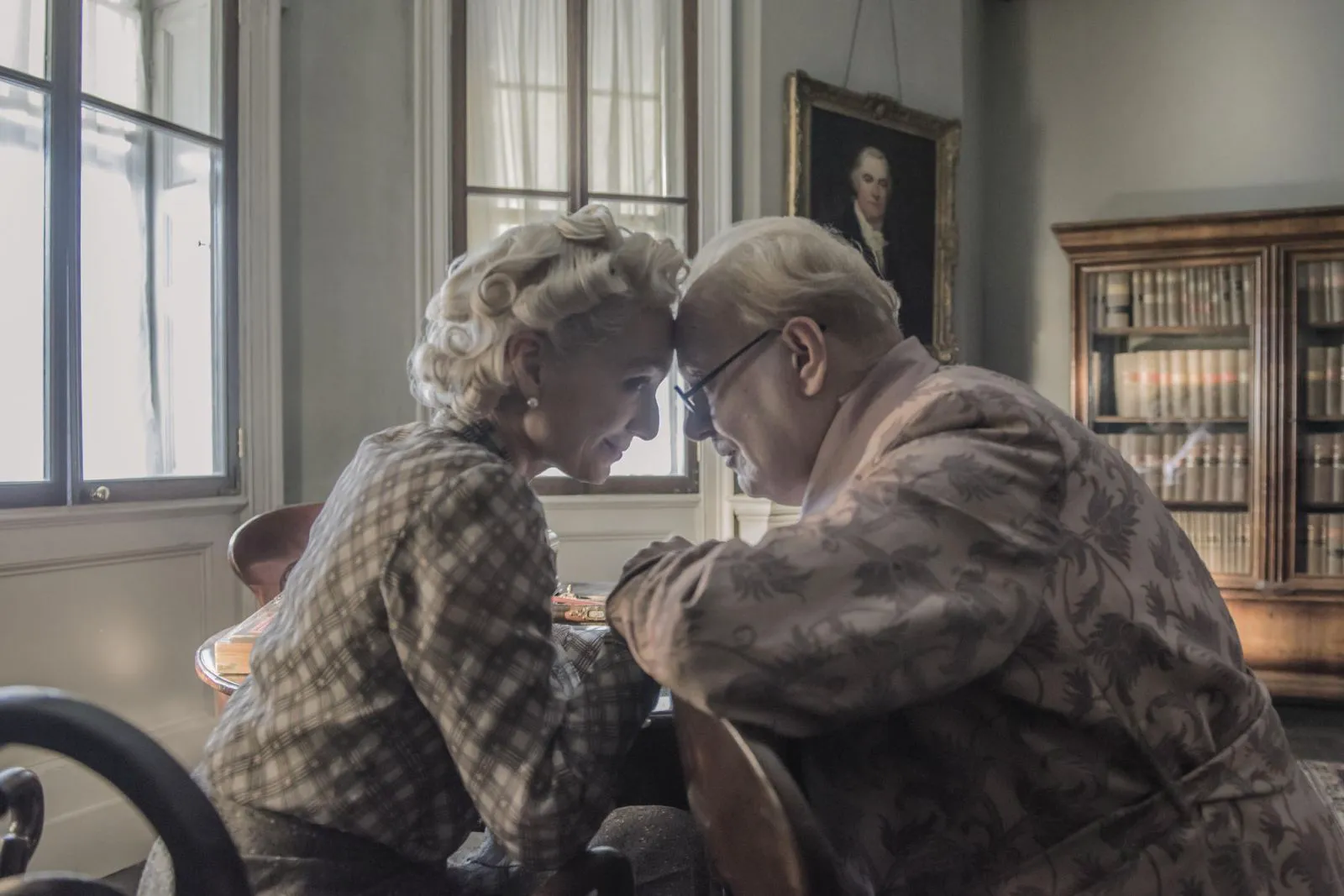
What kind of portrait is painted? Largely a complimentary one. While Churchill had his flaws, and Wright acknowledges his alcoholism, irascibility, capriciousness, self-serving political maneuvering, flawed decisions, and detachment from the lives of ordinary people, these are not presented to diminish him. Instead, they serve to humanize and make him relatable, bringing the titanic figure that Wright envisions closer to the audience. Despite his shortcomings, weaknesses, and eccentricities, Churchill is portrayed not as a pathetic, self-absorbed politician, but as the leader that a frightened nation desperately needed. He is depicted as a courageous and wise man who issued crucial orders from the bunker, stood his ground in the political arena, and inspired the British people with his impassioned speeches. The film illustrates how Churchill’s words ignited the hearts not only of ordinary citizens but also of high-ranking officials accustomed to bombastic rhetoric and fully aware of the country’s perilous situation.
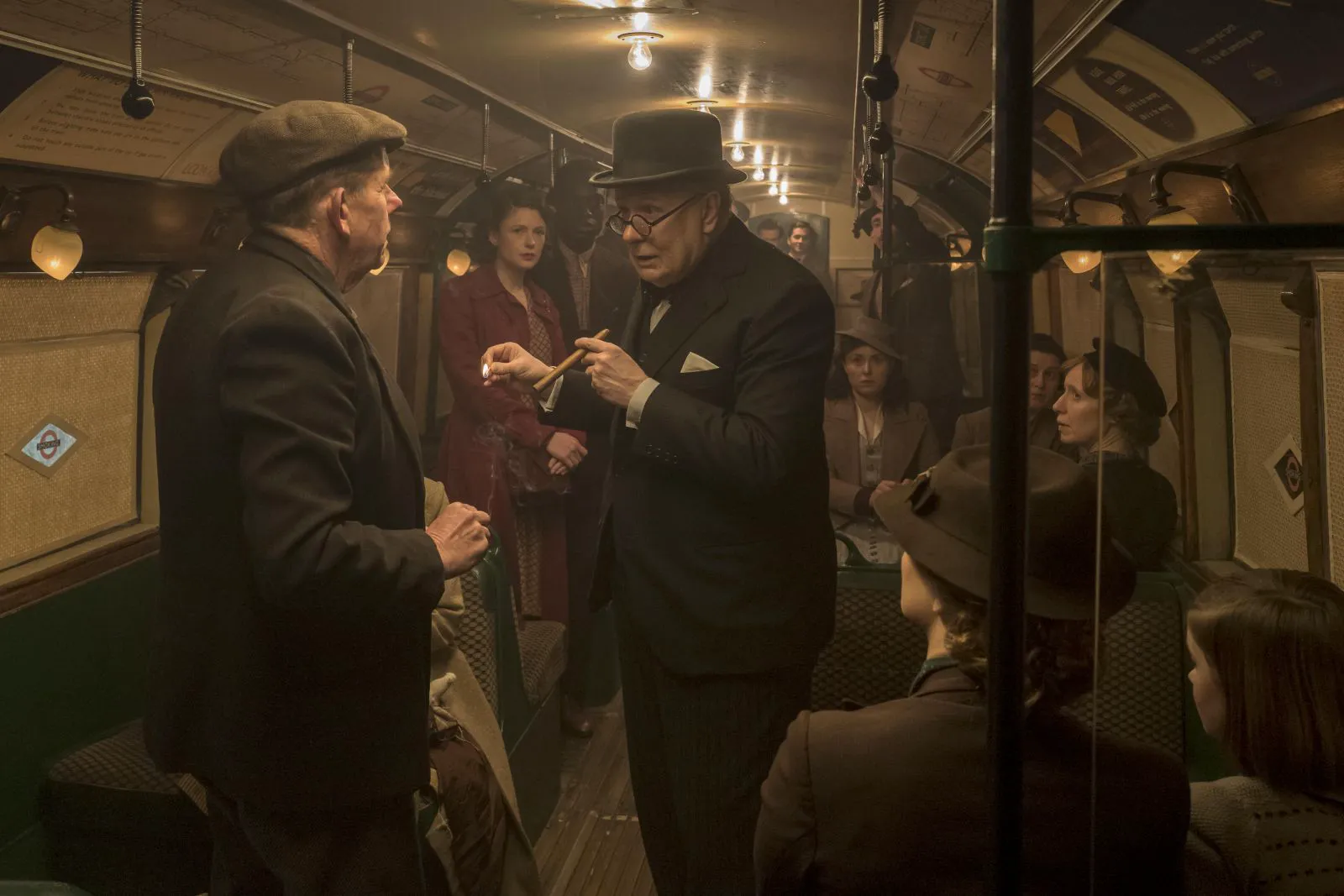
Gary Oldman’s Stellar Performance
“Darkest Hour” was not conceived with Gary Oldman in mind, and the villain from “The Fifth Element” was hardly the obvious or sole candidate for the lead role. However, the British maestro seamlessly embodies the character, aided by the brilliant makeup artists who transformed him into Churchill. Oldman captivates from his first appearance and continues to impress and entertain until the final credits. While viewers in Russia may not fully appreciate the depth of his transformation due to language barriers, what is visible in “Darkest Hour” is enough to consider Oldman a potential Oscar winner. It is a magnificent performance that captures all facets of Churchill, from those he presented to the public to those seen only by his closest confidants. We witness Churchill’s courage, determination, and inspiration, but also his fear, despair, and dark sarcasm. The decisions he made in 1940 were not taken lightly.
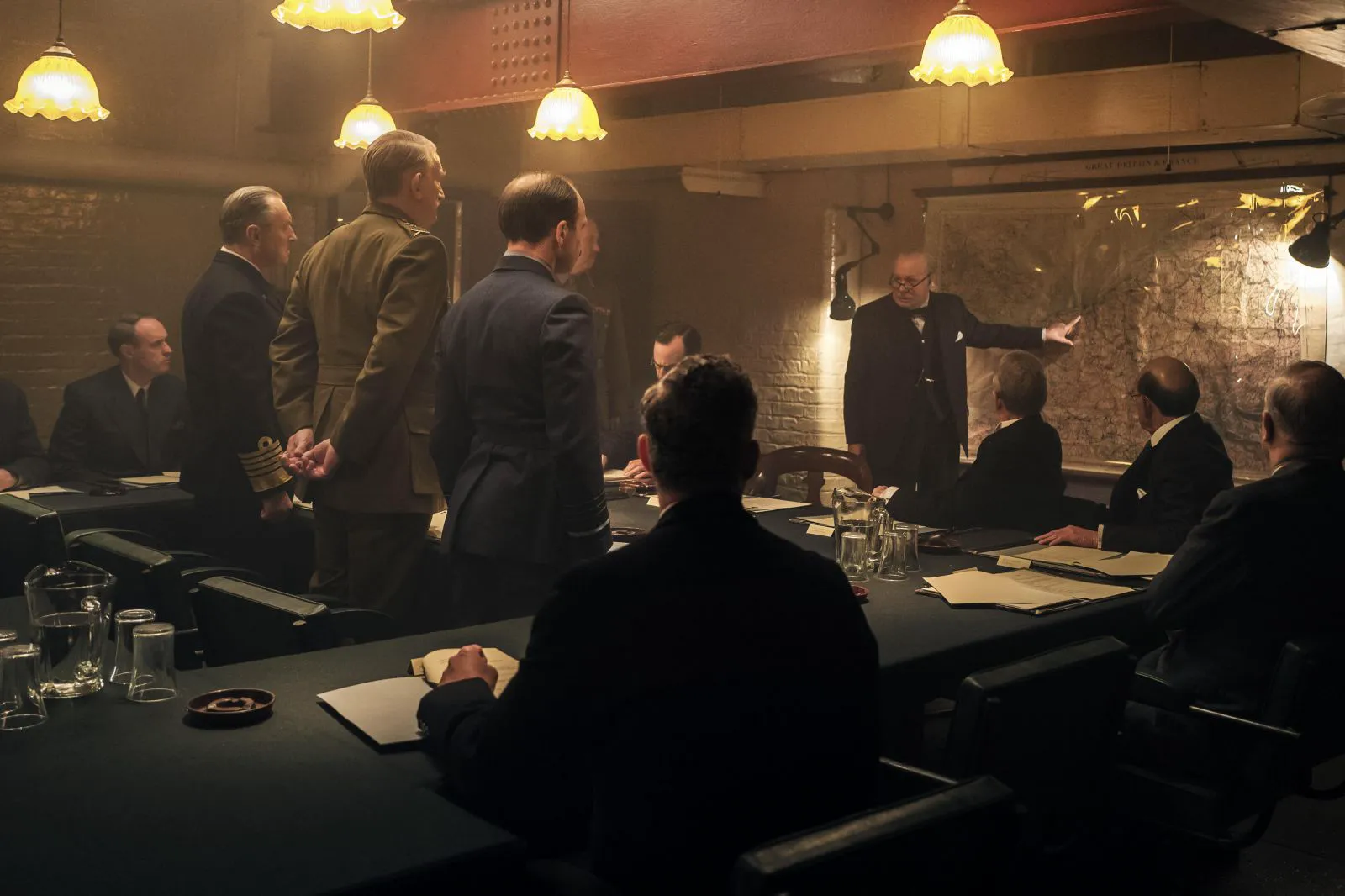
John Hurt was originally cast as Neville Chamberlain, but he was unable to film due to cancer treatment. Hurt passed away during the film’s production.
In keeping with the film’s title, the action unfolds in dramatic semi-darkness. Windows are typically covered with black curtains, and lamps provide only dim light, casting sharp shadows. While the chambers of the British elite likely did not appear so gloomy at the time, this is an artistic choice rather than a recreation of the era’s atmosphere. This visual decision lends the film a theatrical quality, which suits it well. The real Churchill had every reason to feel like an actor standing in the spotlight, reciting “To be or not to be” for the first time before a panel of critical observers.
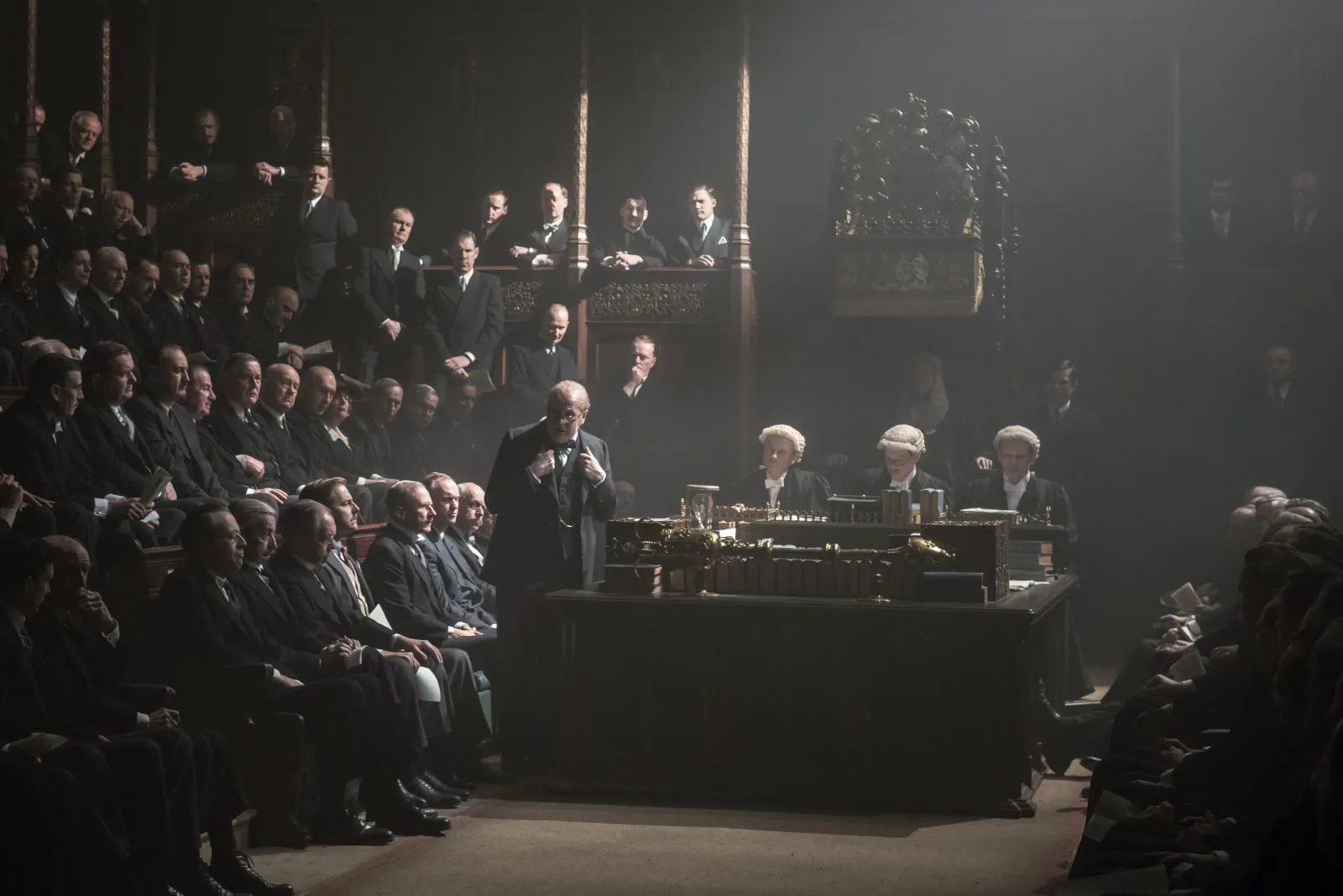
A Disappointing Climax
Unfortunately, “Darkest Hour” falters in its climax. Unable to make a final decision, Churchill descends into the London Underground for the second time in his life and seeks advice from ordinary Londoners, who unanimously declare their willingness to fight to the last drop of blood. While many Britons may have felt this way, it comes across as trite and foolish – a moment more akin to the propaganda of a totalitarian state than a democracy. Britain in 1940 was not united, and it is absurd to suggest otherwise. It is even more absurd to see Churchill solicit the opinion of a small child and listen to their babble as if it holds significance.
Moreover, “Darkest Hour” is a film more for enthusiasts of Western history than for those simply seeking entertainment. Despite Oldman’s brilliant performance, spending two hours in the company of British politicians is a pleasure for connoisseurs.